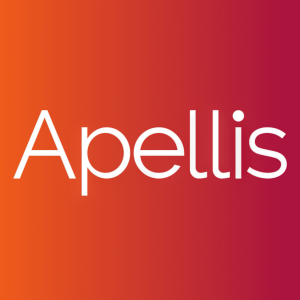Apellis Plans to Seek Re-Examination Following Negative CHMP Opinion for Pegcetacoplan for Geographic Atrophy (GA) in the EU
Rhea-AI Summary
On June 28, 2024, Apellis Pharmaceuticals (Nasdaq: APLS) announced that the European Medicines Agency (EMA)'s Committee for Medicinal Products for Human Use (CHMP) issued a negative opinion on the marketing authorization application for pegcetacoplan, a treatment for geographic atrophy (GA). Despite this, Apellis plans to seek a re-examination with a final decision expected in Q4 2024. The expert group confirmed that GA lesion size is a suitable trial outcome measure and microperimetry is the best functional measure. Pegcetacoplan is already approved in the US for GA secondary to age-related macular degeneration. GA affects over 5 million people globally and leads to irreversible vision loss.
Positive
- None.
Negative
- CHMP issued a negative opinion on pegcetacoplan for GA.
- Re-examination outcome pending until Q4 2024.
News Market Reaction 1 Alert
On the day this news was published, APLS declined 7.61%, reflecting a notable negative market reaction.
Data tracked by StockTitan Argus on the day of publication.
WALTHAM, Mass., June 28, 2024 (GLOBE NEWSWIRE) -- Apellis Pharmaceuticals, Inc. (Nasdaq: APLS) today announced that the Committee for Medicinal Products for Human Use (CHMP) of the European Medicines Agency (EMA) has adopted a negative opinion on the marketing authorization application (MAA) of intravitreal pegcetacoplan for the treatment of geographic atrophy (GA).
Notably, there were multiple dissenting votes by CHMP members to this opinion. Apellis plans to seek re-examination and expects a final opinion in the fourth quarter of 2024. Today’s opinion followed an Ad Hoc Expert Group meeting, in which the experts agreed that size of GA lesion is an acceptable primary outcome measure for a trial in GA and that microperimetry is the best available functional measure in GA.
As previously announced, this review was led by the original rapporteurs following the EMA reset to Day 180 of the initial MAA assessment procedure.
“We remain steadfast in our commitment to GA patients in Europe who have no treatment for this devastating disease, which leads to irreversible vision loss,” said Jeffrey Eisele, Ph.D., chief development officer, Apellis. “It is encouraging to see the broad support for pegcetacoplan within the European retina community, and we are focused on promptly initiating the re-examination to bring this important treatment to those in need.”
About Geographic Atrophy (GA)
Geographic atrophy (GA) is an advanced form of age-related macular degeneration and a leading cause of blindness worldwide, impacting more than one million Americans and five million people worldwide.1,2 It is a progressive and irreversible disease caused by the growth of lesions, which destroy the retinal cells responsible for vision. The vision loss caused by GA severely impairs independence and quality of life by making it difficult to participate in daily activities. On average, it takes only 2.5 years for GA lesions to start impacting the fovea, which is responsible for central vision.3
About Pegcetacoplan for Geographic Atrophy (GA)
Pegcetacoplan is an investigational, targeted C3 therapy designed to regulate excessive activation of the complement cascade, part of the body’s immune system, which can lead to the onset and progression of many serious diseases. SYFOVRE® (pegcetacoplan injection) is approved in the United States for the treatment of GA secondary to age-related macular degeneration.
About Apellis
Apellis Pharmaceuticals, Inc. is a global biopharmaceutical company that combines courageous science and compassion to develop life-changing therapies for some of the most challenging diseases patients face. We ushered in the first new class of complement medicine in 15 years and now have two approved medicines targeting C3. These include the first-ever therapy for geographic atrophy, a leading cause of blindness around the world. We believe we have only begun to unlock the potential of targeting C3 across serious retinal, rare, and neurological diseases. For more information, please visit http://apellis.com or follow us on Twitter and LinkedIn.
Apellis Forward-Looking Statement
Statements in this press release about future expectations, plans and prospects, as well as any other statements regarding matters that are not historical facts, may constitute “forward-looking statements” within the meaning of The Private Securities Litigation Reform Act of 1995. The words “anticipate,” “believe,” “continue,” “could,” “estimate,” “expect,” “intend,” “may,” “plan,” “potential,” “predict,” “project,” “should,” “target,” “will,” “would” and similar expressions are intended to identify forward-looking statements, although not all forward-looking statements contain these identifying words. Actual results may differ materially from those indicated by such forward-looking statements as a result of various important factors, including whether pegcetacoplan will receive approval from foreign regulatory agencies for GA when expected or at all, including the impact on the likelihood and timing of such approvals, and other factors discussed in the “Risk Factors” section of Apellis’ Annual Report on Form 10-K with the Securities and Exchange Commission on February 27, 2024 and the risks described in other filings that Apellis may make with the Securities and Exchange Commission. Any forward-looking statements contained in this press release speak only as of the date hereof, and Apellis specifically disclaims any obligation to update any forward-looking statement, whether as a result of new information, future events or otherwise.
Media Contact:
Tracy Vineis
media@apellis.com
617.420.4839
Investor Contact:
Meredith Kaya
meredith.kaya@apellis.com
617.599.8178
1Rudnicka AR, Jarrar Z, Wormald R, et al. Age and gender variations in age-related macular degeneration prevalence in populations of European ancestry: a meta analysis. Ophthalmology 2012;119:571–580.
2Wong WL, Su X, Li X, et al. Global prevalence of age-related macular degeneration and disease burden projection for 2020 and 2040: a systematic review and meta-analysis. Lancet Glob Health 2014;2:e106–116.
3Lindblad AS, et al, and AREDS Research Group. Arch Ophthalmol. 2009;127(9):1168-1174.










